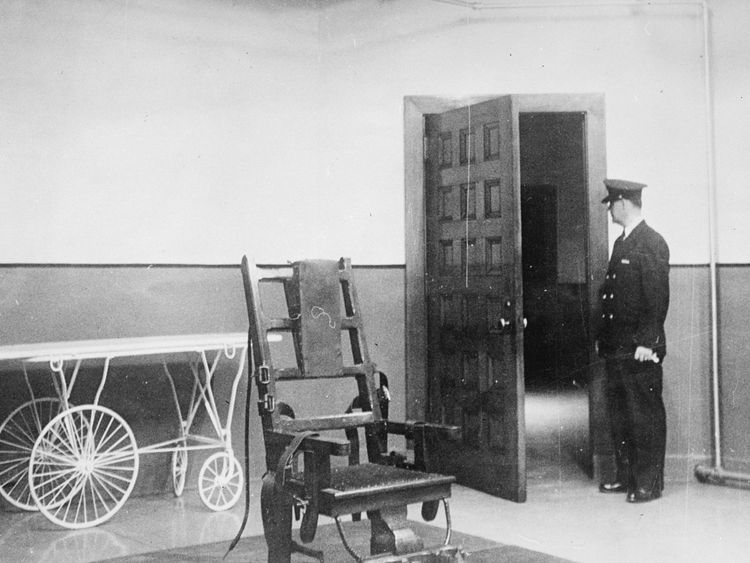An inmate in the US has chosen to be executed in the electric chair after arguing that lethal injections are not humane.
David Earl Miller will be the second person to die in the Tennessee's electric chair in recent months on Thursday evening.
The 61-year-old has been on death row for 36 years – the longest time a prisoner has waited for execution in the state.
Miller was convicted of first-degree murder for the May 1981 killing of Lee Standifer.
The 23-year-old woman, who was mentally disabled, was repeatedly beaten, stabbed and dragged into the woods after going on a date with Miller.
Convicted murderer Edmund Zagorski, who was executed on 1 November, had also chosen the electric chair over lethal injection, despite proponents saying this method is painless and humane.
Both inmates had argued in court that Tennessee's current method, involving the drug midazolam, involves a prolonged and torturous death.
Miller and Zagorski pointed to the state's execution of Billy Ray Irick in August, which took about 20 minutes.
During this time, Irick was coughing and huffing before he turned dark purple.
The duo's case was thrown out – mainly because a judge said they failed to prove that a more humane alternative was available.
Zagorski's execution was delayed for about three weeks after he requested the electric chair amid a last-minute flurry of legal manoeuvres.
A federal court judge eventually ordered the state to comply, and the 63-year-old was executed on 1 November.
It was only the second time Tennessee had put an inmate to death in the electric chair since 1960.

States have moved away from the electric chair in recent decades – and no state uses electrocution as its main execution method anymore.
First used in 1890, execution by electric chair was developed as a "humane alternative" to hanging.
More from Tennessee

Various cycles of alternating current would be passed through the individual's body which would then cause fatal damage to the internal organs. It involves two powerful jolts of electric current, with the first causing immediate unconsciousness.
In Tennessee, inmates whose crimes were committed before 1999 can choose electrocution over lethal injection.
[contf] [contfnew] 
Sky News
[contfnewc] [contfnewc]






